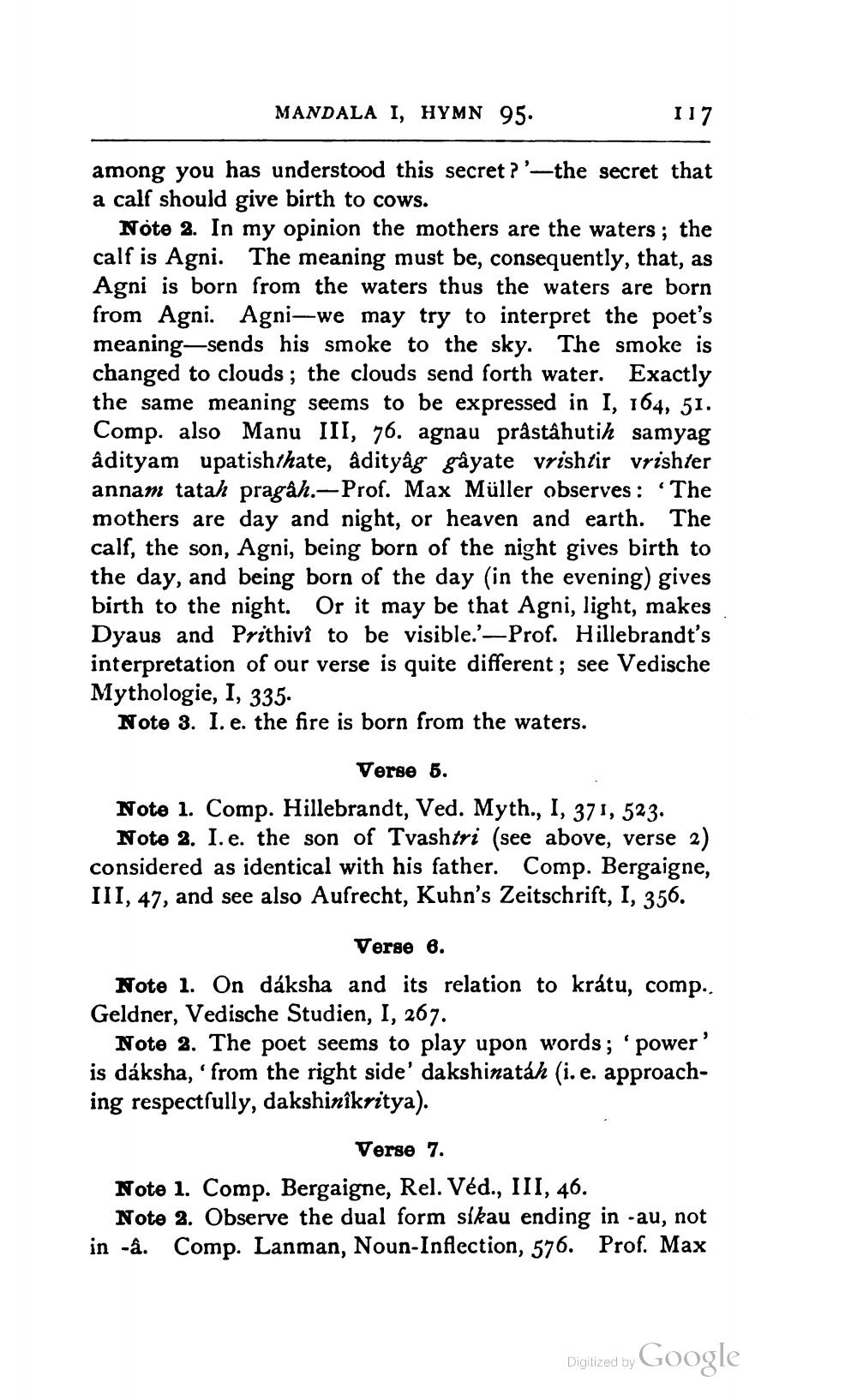________________
MANDALA I, HYMN 95.
117
among you has understood this secret?'-the secret that a calf should give birth to cows.
Note 2. In my opinion the mothers are the waters; the calf is Agni. The meaning must be, consequently, that, as Agni is born from the waters thus the waters are born from Agni. Agni-we may try to interpret the poet's meaning-sends his smoke to the sky. The smoke is changed to clouds; the clouds send forth water. Exactly the same meaning seems to be expressed in I, 164, 51. Comp. also Manu III, 76. agnau prâstâhutih samyag âdityam upatish/hate, âdityâg gâyate vrishtir vrishter annam tatah pragâh.-Prof. Max Müller observes: 'The mothers are day and night, or heaven and earth. The calf, the son, Agni, being born of the night gives birth to the day, and being born of the day (in the evening) gives birth to the night. Or it may be that Agni, light, makes Dyaus and Prithivi to be visible.'-Prof. Hillebrandt's interpretation of our verse is quite different; see Vedische Mythologie, I, 335.
Note 3. I. e. the fire is born from the waters.
Verse 5.
Note 1. Comp. Hillebrandt, Ved. Myth., I, 371, 523. Note 2. I. e. the son of Tvashtri (see above, verse 2) considered as identical with his father. Comp. Bergaigne, III, 47, and see also Aufrecht, Kuhn's Zeitschrift, I, 356.
Verse 6.
Note 1. On dáksha and its relation to krátu, comp.. Geldner, Vedische Studien, I, 267.
Note 2. The poet seems to play upon words; 'power' is daksha, 'from the right side' dakshinatáh (i. e. approaching respectfully, dakshinîkritya).
Verse 7.
Note 1. Comp. Bergaigne, Rel. Véd., III, 46.
Note 2. Observe the dual form síkau ending in -au, not in -â. Comp. Lanman, Noun-Inflection, 576. Prof. Max
Digitized by Google




